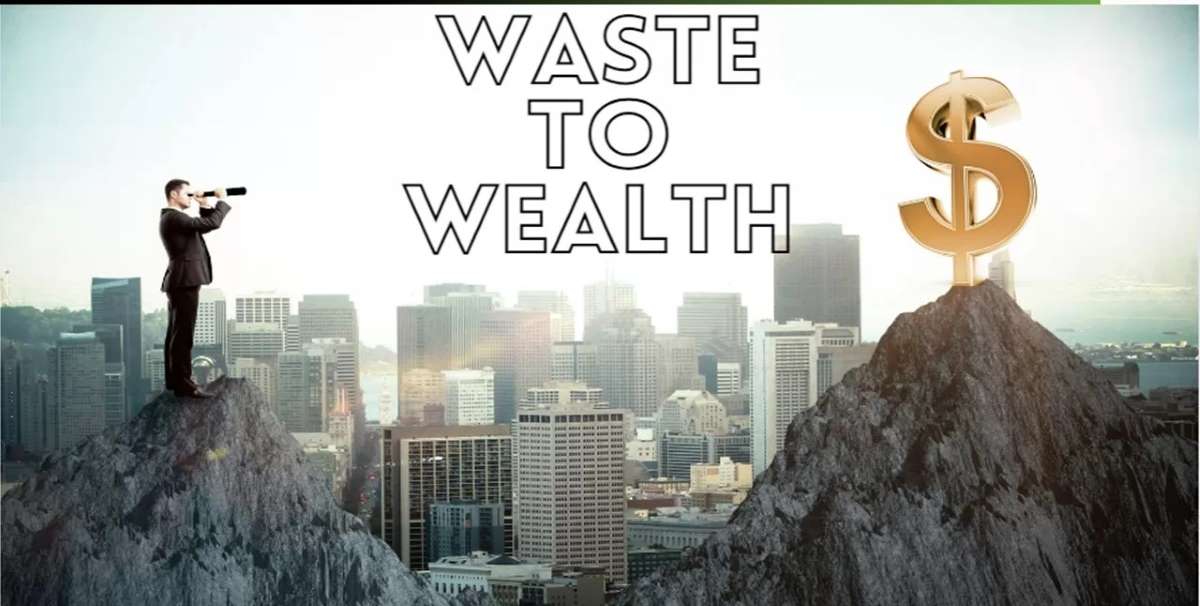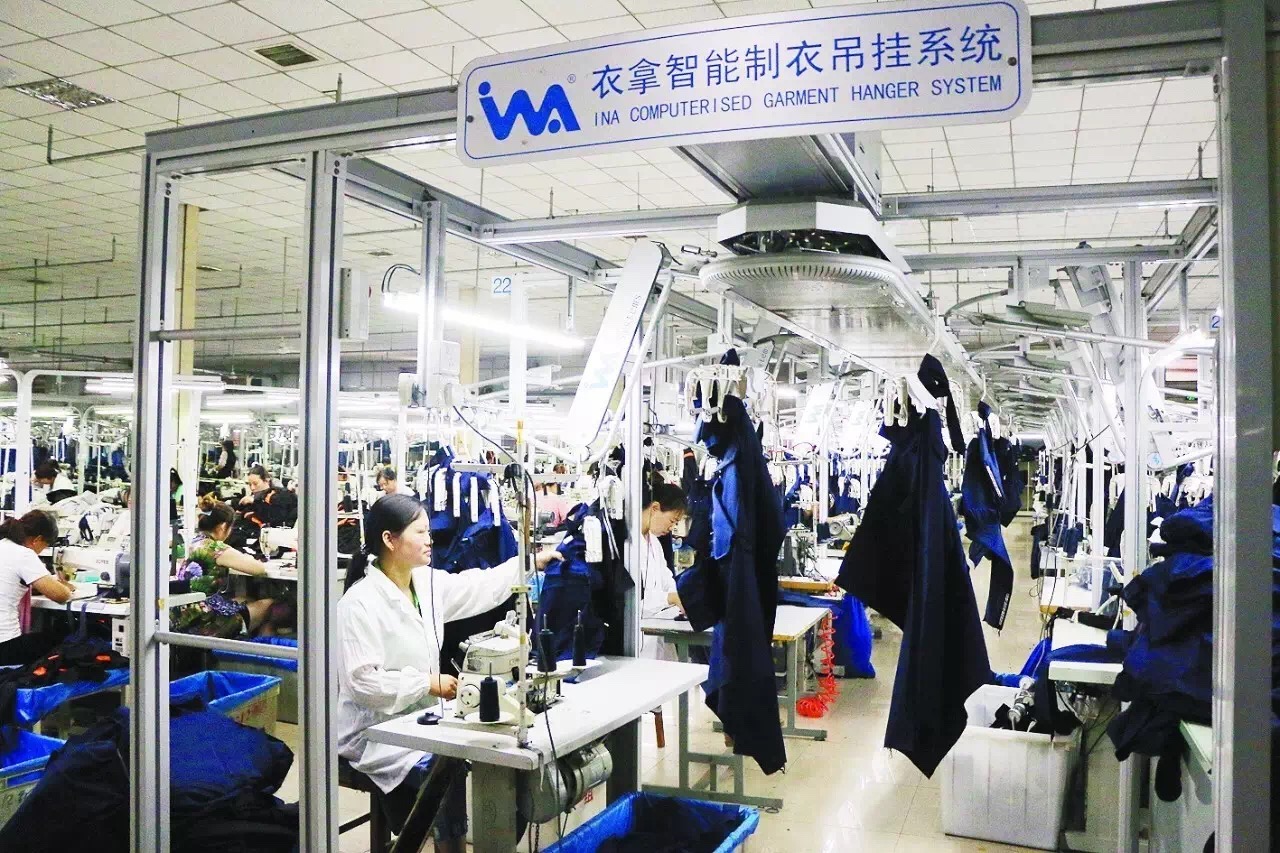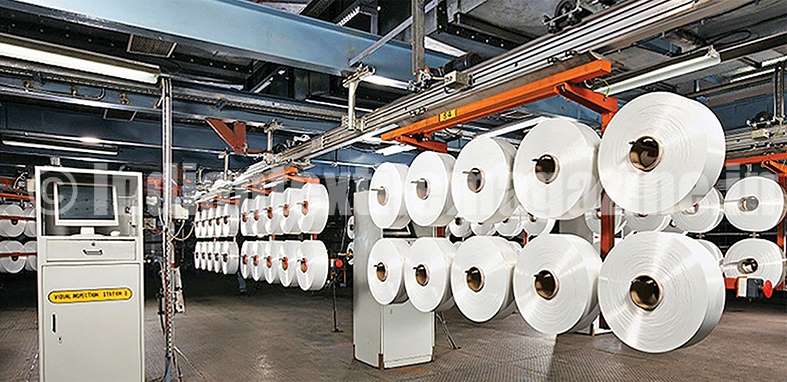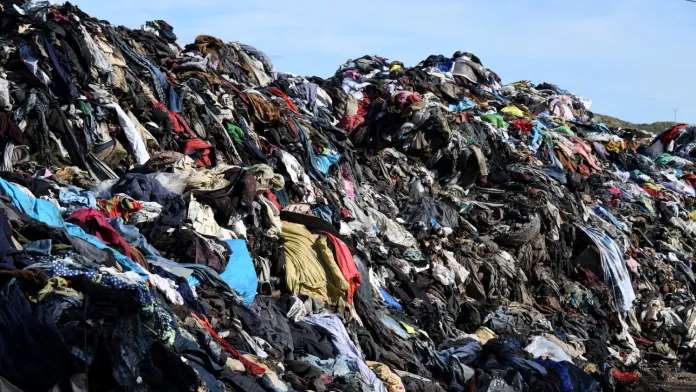FW
In a dynamic textile landscape, the allure of wool yarn persists, driven by evolving consumer demands and innovative manufacturing practices. Crossbreeding emerges as a transformative force, propelling the wool yarn market to new heights of growth and versatility.
End users now demand exceptional quality, prompting manufacturers to redefine standards. Crossbreeding emerges as a solution, offering unparalleled yarn quality that surpasses traditional benchmarks.
Manufacturers are shifting from purebred to crossbred wool yarns, blending qualities for unprecedented versatility. This innovation disrupts conventional norms, opening avenues for diverse applications and opportunities.
Crossbreeding expands the market horizon, transcending traditional uses to cater to various industries. From lightweight apparel to novel applications, crossbred wool yarns redefine possibilities, heralding a paradigm shift in market dynamics.
Insights from Persistence Market Research illuminate the path forward, empowering industry leaders with a comprehensive understanding of market trends and growth potential. With strategic foresight, manufacturers can navigate the evolving landscape and capitalize on emerging opportunities.
The resurgence of the wool yarn market signals a turning point, fueled by evolving dynamics and consumer preferences. Manufacturers can harness this momentum by fostering partnerships and embracing innovation to secure their foothold in the market.
Woolen apparel leads the resurgence, catering to modern fashion needs with classic elegance and contemporary functionality. As consumer preferences evolve, manufacturers must adapt to meet diverse demands and industry trends.
Environmental consciousness drives manufacturers to adopt cruelty-free practices and promote sustainability throughout the supply chain. By aligning with consumer values, manufacturers bolster brand image and market position.
Collaboration is paramount in the competitive wool yarn market. While leading companies dominate, emerging players carve niches, driven by innovation and excellence, capitalizing on regional markets and demand for worsted wool yarn.
As the wool yarn market evolves, crossbreeding and innovation will shape its trajectory, promising growth and adaptation to changing consumer needs. With a commitment to excellence, manufacturers can weave a prosperous future for the industry, embracing opportunities for sustainable, quality-driven growth.
Riri's expertise in luxury craftsmanship shines through in its accessories, enriching the offerings of top fashion brands. In the Spring-Summer 25 collection, Oerlikon Riri presents meticulously crafted zippers and buttons, enhanced by the technological prowess of Oerlikon Fineparts. Together, they form integral components of the Oerlikon Luxury business unit, delivering a diverse range of accessories that epitomize luxury, from timeless classics to bespoke pieces.
In the "Enhanced Classic" line, traditional luxury meets contemporary sophistication. Classic colors like gold, black, and beige are reinvented with metalized tapes and glossy enamels, while innovative finishes like PVD add a touch of modernity. The incorporation of sustainable materials like recycled polyester and organic cotton underscores Riri's commitment to timeless class with a conscience.
Meanwhile, the "Faced Marble" trend embraces modernity with geometric shapes and multifaceted designs. Marble-inspired textures and matte black PVD accents create a striking contrast, evoking an ethereal elegance suited for the contemporary fashion connoisseur.
As part of the Oerlikon Luxury business unit, Riri and Oerlikon Fineparts seamlessly collaborate to offer a diverse range of accessories, from classic to tailor-made, catering to the discerning tastes of the high-fashion market. With this collection, Riri reaffirms its position as a pioneer in luxury craftsmanship, blending tradition with innovation to create accessories that transcend trends and stand the test of time.
Spinnova, a pioneer in sustainable textile materials, took center stage at the Fashion Collaboration spring show by Beckmans College of Design, showcasing its eco-friendly fabrics in two standout collections.
Designed by burgeoning talents Emma Carling and Miranda Berg, the collections spotlighted seven captivating looks crafted in collaboration with Spinnova. Held at Gasverket, Doubble Space in Stockholm, the shows highlighted the experimental use of sustainable materials, marking a significant stride towards environmentally conscious fashion.
Emma Carling drew inspiration from the concept of glamping, blending glamour with outdoor allure using Spinnova's outdoor fabric. Miranda Berg, meanwhile, delved into the therapeutic potential of fashion, leveraging Spinnova's fiber known for its calming effect rooted in nature.
The Spinnova-infused garments feature a blend of Spinnova fiber and cotton, incorporating unconventional materials like horsehair. Notably, Spinnova fiber, derived from wood, boasts a production process free from harmful chemicals, aligning with sustainable practices.
Certified eucalyptus pulp further enhances its eco-credentials, reducing water consumption by 99 per cent and carbon dioxide emissions by 74 per cent compared to conventional cotton, as verified by third-party assessments.
Diana Balanescu, Brand Director at Spinnova, expressed excitement about collaborating with forward-thinking designers like Emma and Miranda. The partnership underscores Spinnova's commitment to fostering innovation and sustainability in the fashion industry.
Arizona Federal court's ruling on dicamba products sparks dismay from the National Cotton Council, as it strips the label for over-the-top use, disrupting 75 per cent of U.S. cotton acres. The timing compounds the issue, hitting producers who've already committed to cropping decisions and preparations.
With no time to adopt alternative herbicide technology for 2024 planting, millions of acres face compromised production, worsening an already strained economic climate with prices falling below production costs.
Calling for an immediate EPA appeal, the Council emphasizes the ruling's potential to hinder technological progress and environmental gains, such as reduced greenhouse gas emissions. Urging swift action, they implore the EPA to explore every avenue to mitigate the looming economic fallout, underscoring the critical role dicamba products play in crop protection.
In the backdrop of agricultural uncertainty, the ruling's ramifications echo beyond the Cotton Belt, highlighting broader concerns about regulatory disruptions impacting industry stability and technological innovation.
Textile manufacturers from Kenya's cotton-growing regions are fiercely opposing the government's plan to import duty-free fabric. They warn that this move will cripple the domestic textile industry, devastate cotton farmers, and erase recent progress in reviving the sector.
Highlighting the negative impact of the move on farmers, governors like Glady Wanga and Paul Otuoma are emphasising on the importance of supporting farmers to ensure a steady supply of raw materials, especially with the modernisation of state-owned Rivatex nearing completion.
Governor Wanga says, the import plan for contradicting the government's own ‘bottom-up economic agenda’ that focuses on job creation and farmer empowerment. She urged the government to prioritise local production and support farmers through extension services for improved yields.
Echoing the concern about job losses, textile industry leaders like Tejal Dodhia and Thomas Kipkurgat are also urging the government to embrace the ‘Buy Kenya, Build Kenya’ spirit. They are emphasising on the capability of domestic producers to meet the country's needs and call for rejecting the import plan.
Textile giants HKRITA and Seiko Epson are teaming up to tackle the challenge of textile waste with an innovative new collaboration. Building on their 2023 agreement, these two companies have signed a joint development deal to create a revolutionary recycling program.
In this collaboration, Epson’s unique dry fiber technology will be adapted to break down complex fabrics. The process will be guided by HKRITA's expertise in textile recycling systems and the quality of the recycled materials will be evaluated.
Transcending industry boundaries, this collaboration unlocks new possibilities for sustainability by going beyond individual industries and creating new opportunities for both companies, says Edwin Keh, CEO, HKRITA.
Emphasising the shared commitment to circular economy, Satoru Hosono, Epson, says, this partnership allows Epson to develop recycling solutions for previously discarded clothing and textiles, thus meeting the growing global demand for sustainable alternatives.
Having immense potential for future of textile recycling, this collaboration offers groundbreaking solutions for a more sustainable fashion industry.
Taking a plunge into the world of eco-conscious fashion, California-based swimwear brand Vitamin A is launching its ReLux collection, the first collection made from 100 per cent recycled fabric. Developed by Hyosung and Hung Yen Knitting & Dyeing, this innovative material incorporates repurposed fishing nets and recycled Spandex, offering a sustainable alternative to traditional swimwear textiles.
The launch of ReLux responds to a growing demand for eco-friendly swimwear amongst consumers who are increasingly concerned about the environmental impact of their clothing choices.Highlighting this shift in consumer preferences, Mark Sunderland, Vice President-Product Innovation, Swim USA (Vitamin A's parent company), says, with its ReLux collection, the brand offers a product actively contributes to ocean health."
Founded in 2000 with a commitment to sustainability, Vitamin A has consistently ranked among the top five eco-friendly swimwear brands. The brand’s consistent use of plant-based and recycled materials, local manufacturing in California, and support for ocean conservation organisations like 1 per cent for the Planet strengthen its dedication to environmental responsibility.

The recently concluded Milano Unica, held from January 23rd to 25th, 2024, showcased latest trends, fostering connections, and driving business forward. Here's are the key takeaways.
Strong buyer presence: The event saw a surge in international buyers, indicating renewed confidence in the industry's post-pandemic recovery. "Milano Unica always attracts a diverse and high-quality audience," says Fabio Rivolta, President of the National Chamber of Fashion. "This year, the strong international presence is particularly encouraging, signaling a positive outlook for the future."
Sustainability in focus: Sustainability remained a major theme, with many brands showcasing eco-friendly materials and production processes. "Sustainability is no longer a trend, it's a necessity," stated Elena Salvatelli, CEO of the Candiani denim mill. "We're seeing growing demand for responsible and transparent practices, and Milano Unica provided a platform to highlight our commitment to this."
Digitalization and innovation: Technology played a significant role, with exhibitors showcasing innovative solutions for design, production, and supply chain management. "Digitalization is transforming the industry, and Milano Unica is at the forefront of this change," opined Marco Pietra, CEO of the Italian Textile Machinery Association. "We saw a wide range of exciting new technologies that will improve efficiency and sustainability."
New launches, seminars and workshops
Emerging designers in the spotlight: The "Next Generation" section featured promising young designers, showcasing their innovative approaches and fresh perspectives. "Being part of Next Generation is a fantastic opportunity to gain exposure and connect with potential clients," said Giulia Rossi, a young designer showcased in the section. "The platform provided valuable feedback and allowed me to share my vision with a wider audience."
Seminars and workshops: A packed schedule of seminars, conferences, and workshops covered diverse topics like sustainable practices, digital transformation, and market trends. "The seminars offered valuable insights and helped us stay up-to-date on industry developments," shared Maria Esposito, a buyer. "The mix of topics and speakers was very impressive."
Product trends
Natural fibers and comfort: Fabrics made from natural fibers like linen, cotton, and hemp were prominent, reflecting a growing demand for comfort and sustainability. "We're seeing a shift towards natural fibers that are gentle on the skin and the environment," explained Paolo Colombo, CEO of a leading textile manufacturer. "This trend is driven by consumers' increasing awareness of the impact of their choices."
Bold colors and patterns: While comfort reigns supreme, designers also embraced bold colors and patterns, adding a touch of vibrancy and personality to their collections. "Fashion is about expressing oneself, and this season's trends offer a variety of options for people to showcase their unique style," said Carla Rossi, a fashion trend analyst. "From statement prints to vibrant colors, there's something for everyone."
Functionality and versatility: Clothing with a focus on functionality and versatility was a key trend, catering to consumers' busy lifestyles. "People want clothes that are comfortable, stylish, and practical," noted Marco Bianchi, a retail owner. "This season's collections offer pieces that can easily transition from day to night, making them perfect for modern living."
Milano Unica left participants with valuable insights, new connections, and a renewed sense of optimism for the future of the textile industry. The event's focus on sustainability, innovation, and product evolution promises exciting developments in the months and years to come.
Renowned textile trade show, Texworld made a triumphant return to Paris this year with a record-breaking 1,300 exhibitors and a new two-floor layout.
Organised by Messe Frankfurt France, the trade show changed its name to Texworld –Apparel Sourcing-Paris-reflecting the trend of buyers sourcing both materials and finished products. The new name emphasises Texworld's commitment to weaving the future of fashion sourcing and providing comprehensive solutions.
At the event Industry leaders discussed the importance of transparent sourcing, particularly in cotton and in light of the Ukrainian conflict. The desire to do business remains strong despite complex global situation, said Frederic Bougeard, President, Messe Frankfurt France. The trade show offers a unique platform for sourcing a wide range of products, from basic materials to finished collections, he added.
The success of this event signals a positive outlook for the textile industry and underscores Texworld's position as a leader in fashion sourcing solutions.
Owner of popular brands like Vans and The North Face, VF Corp is facing headwinds from slowing consumer demand. Missing analysts’ expectations, the company’s Q3 revenues dropped by 16 per cent Y-o-Y in the current fiscal.
VF Corp also announced the stepping down of Matt Puckett, CEO, from his position later this year, sending the company’s shares down by about 9 per cent in extended trading
The company’s revenue for the third quarter declined to $2.96 billion as against the anaylsts’ estimates of $3.24 billion. Its adjusted EPS declined by 49 per cent Y-o-Y to 57 cents as against analysts' estimate of 77 cents.
The company’s revenue from its Vans brand declined by 28 per cent while revenues from the Americas region decreased by 24 per cent.
The company, which withdrew its annual forecasts in October and announced a cost reduction program, had also begun an in-depth strategic review of its Global Packs business, including brands such as Kipling and JanSport.
Parent company of the brand Timberland, VF Corp struggled with weak wholesale demand this fiscal year as retailers trim their inventories amid soft discretionary demand in the United States. The company suffered due to a reduction in consumer confidence that led reduced discretionary spending and inventory trimming by retailers. It was also impacted by a weak demand for Vans sneakers in the US and other key international markets, and a soft holiday season with lower sales outside of promotional periods.
To counter this decline, VF Corp plans to increase promotions its brand Vans. It also announced a cost reduction program in October 2023 and has begun an in-depth strategic review of its Global Packs business, including brands such as Kipling and JanSport.












